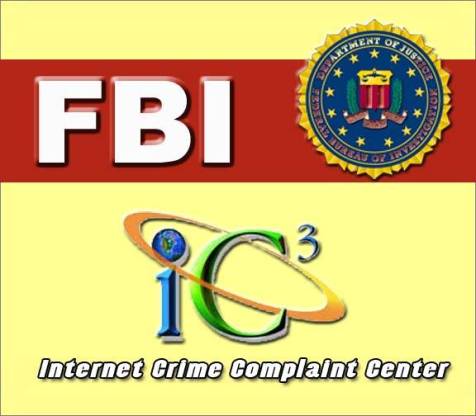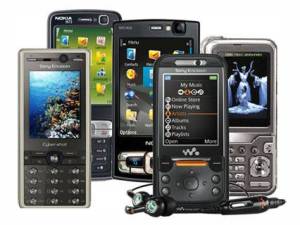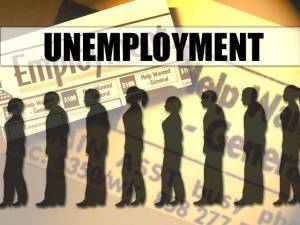FBI’s Recent Internet Scams and Warnings
Every few minutes a new victim falls prey to Internet scams. While we think we would never fall victim to such a crime. I am sure all victims thought the same way before they became the victim. After making the post earlier on the announcement from the FBI concerning the shut down of Internet service on July 9, I found these other scams listed on their site.
The one I found very interesting is a scam aimed at lawyers who have even fell prey to these scams.
______________________________________________________________________
To report potential e-scams, please go the Internet Crime Complaint Center and file a report.
Note: the FBI does not send mass e-mails to private citizens about cyber scams, so if you received an e-mail that claims to be from the FBI Director or other top official, it is most likely a scam.
If you receive unsolicited e-mail offers or spam, you can forward the messages to the Federal Trade Commission at spam@uce.gov.
Below are some recent scams and warnings.
Citadel Malware Delivers Reveton Ransomware in Attempts to Extort Money
05/30/12—The IC3 has been made aware of a new Citadel malware platform used to deliver ransomware, named Reveton. The ransomware lures the victim to a drive-by download website, at which time the ransomware is installed on the user’s computer. Once installed, the computer freezes and a screen is displayed warning the user they have violated United States federal law. The message further declares the user’s IP address was identified by the Computer Crime & Intellectual Property Section as visiting child pornography and other illegal content.
To unlock the computer, the user is instructed to pay a $100 fine to the U.S. Department of Justice using prepaid money card services. The geographic location of the user’s IP address determines what payment services are offered. In addition to the ransomware, the Citadel malware continues to operate on the compromised computer and can be used to commit online banking and credit card fraud.
This is an attempt to extort money with the additional possibility of the victim’s computer being used to participate in online bank fraud. If you have received this or something similar, do not follow payment instructions.
It is suggested that you:
Contact your banking institutions.
File a complaint at www.IC3.gov.
Malware Installed on Travelers’ Laptops through Software Updates on Hotel Internet Connections
05/08/12—Recent analysis from the FBI and other government agencies demonstrates that malicious actors are targeting travelers abroad through pop-up windows while they are establishing an Internet connection in their hotel rooms.
Recently, there have been instances of travelers’ laptops being infected with malicious software while using hotel Internet connections. In these instances, the traveler was attempting to set up the hotel room Internet connection and was presented with a pop-up window notifying the user to update a widely used software product. If the user clicked to accept and install the update, malicious software was installed on the laptop. The pop-up window appeared to be offering a routine update to a legitimate software product for which updates are frequently available.
The FBI recommends that all government, private industry, and academic personnel who travel abroad take extra caution before updating software products through their hotel Internet connection. Checking the author or digital certificate of any prompted update to see if it corresponds to the software vendor may reveal an attempted attack. The FBI also recommends that travelers perform software updates on laptops immediately before traveling, and that they download software updates directly from the software vendor’s website if updates are necessary while abroad.
Anyone who believes they have been a target of this type of attack should immediately contact their local FBI office and promptly report it to the IC3’s website at www.IC3.gov. The IC3’s complaint database links complaints together to refer them to the appropriate law enforcement agency for case consideration. The complaint information is also used to identify emerging trends and patterns.
U.S. Law Firms Continue to be the Target of Counterfeit Check Scheme
03/12/12—The IC3 continues to receive reports of counterfeit check schemes targeting U.S. law firms. The scammers contact lawyers via e-mail, claiming to be overseas and requesting legal representation in collecting a debt from third parties located in the U.S. The law firms receive a retainer agreement and a check payable to the law firm. The firms are instructed to deposit the check, take out retainer fees, and wire the remaining funds to banks in China,Korea,Ireland, or Canada. After the funds are wired overseas, the checks are determined to be counterfeit.
In a slight variation of the scheme’s execution, the victim law firm receives an e-mail from what appears to be an attorney located in another state requesting assistance for a client. The client needs aid in collecting a debt from a company located in the victim law firm’s state.
In some cases, the name of the referring attorney and the debtor company used in the e-mail were verified as legitimate entities and were being used as part of the scheme. The law firm receives a signed retainer agreement and a check made payable to the law firm from the alleged debtor. The client instructs the law firm to deposit the check and to wire the funds, minus all fees, to an overseas bank account. The law firm discovers after the funds are wired that the check is counterfeit.
Law firms should use caution when engaging in transactions with parties who are handling their business solely via e-mail, particularly those parties claiming to reside overseas. Attorneys who agree to represent a client in circumstances similar to those described above should consider incorporating a provision into their retainer agreement that allows the attorney to hold funds received from a debtor for a sufficient period of time to verify the validity of the check.
If you have been a victim of an internet scam or have received an e-mail that you believe was an attempted scam, please file a complaint at www.IC3.gov.
New Variation on Telephone Collection Scam Related to Delinquent Payday Loans
02/21/12—The Internet Crime Complaint Center (IC3) continues to receive complaints from victims of payday loan telephone collection scams. As previously reported in December 2010, the typical payday loan scam involves a caller who claims the victim is delinquent on a payday loan and must make payment to avoid legal consequences.
Callers pose as representatives of the FBI, “Federal Legislative Department,” various law firms, or other legitimate-sounding agencies and claim to be collecting debts for companies such as United Cash Advance, U.S. Cash Advance, U.S. Cash Net, or other Internet check-cashing services. The fraudsters relentlessly call the victim’s home, cell phone, and place of employment in attempts to obtain payment. The callers refuse to provide information regarding the alleged payday loan or any documentation and become verbally abusive when questioned.
The IC3 has observed variations of this scam in which the caller tells the victim that there are outstanding warrants for the victim’s arrest. The caller claims that the basis of the warrants is non–payment of the underlying loan and/or hacking. If it’s the later, the caller tells the victim that he or she is wanted for hacking into a business’ computer system to steal customer information. The caller will then demand payment via debit/credit card; in other cases, the caller further instructs victims to obtain a prepaid card to cover the payment.
The high-pressure collection tactics used by the fraudsters have also evolved. In one recent complaint, a person posed as a process server and appeared at the victim’s job. In another instance, a phony process server came to a victim’s home. In both cases, after claiming to be serving a court summons, the alleged process server said the victim could avoid going to court if he or she provided a debit card number for repayment of the loan.
If you are contacted by someone who is trying to collect a debt that you do not owe, you should:
Contact your local law enforcement agencies if you feel you are in immediate danger;
Contact your bank(s) and credit card companies;
Contact the three major credit bureaus and request an alert be put on your file;
If you have received a legitimate loan and want to verify that you do not have any outstanding obligation, contact the loan company directly;
File a complaint at www.IC3.gov.
Timeshare Marketing Scams
01/25/12—Timeshare owners across the country are being scammed out of millions of dollars by unscrupulous companies that promise to sell or rent the unsuspecting victims’ timeshares. In the typical scam, timeshare owners receive unexpected or uninvited telephone calls or e-mails from criminals posing as sales representatives for a timeshare resale company. The representative promises a quick sale, often within 60-90 days. The sales representatives often use high-pressure sales tactics to add a sense of urgency to the deal. Some victims have reported that sales representatives pressured them by claiming there was a buyer waiting in the wings, either on the other line or even present in the office.
Timeshare owners who agree to sell are told that they must pay an upfront fee to cover anything from listing and advertising fees to closing costs. Many victims have provided credit cards to pay the fees ranging from a few hundred to a few thousand dollars. Once the fee is paid, timeshare owners report that the company becomes evasive—calls go unanswered, numbers are disconnected, and websites are inaccessible.
In some cases, timeshare owners who have been defrauded by a timeshare sales scheme have been subsequently contacted by an unscrupulous timeshare fraud recovery company as well. The representative from the recovery company promises assistance in recovering money lost in the sales scam. Some recovery companies require an up-front fee for services rendered, while others promise no fees will be paid unless a refund is obtained for the timeshare owner. The IC3 has identified some instances where people involved with the recovery company also have a connection to the resale company, raising the possibility that timeshare owners are being scammed twice by the same people.
If you are contacted by someone offering to sell or rent your timeshare, the IC3 recommends using caution.
Listed below are tips you can use to avoid becoming a victim of a timeshare scheme:
Be wary if a company asks you for up-front fees to sell or rent your timeshare.
Read the fine print of any sales contract or rental agreement provided.
Check with the Better Business Bureau to ensure the company is reputable.
To obtain more information on Internet schemes, visit www.LooksTooGoodToBeTrue.com.
Anyone who believes they have been a victim of this type of scam should promptly report it to the IC3’s website at www.IC3.gov.
The IC3’s complaint database links complaints together to refer them to the appropriate law enforcement agency for case consideration.











You must be logged in to post a comment.